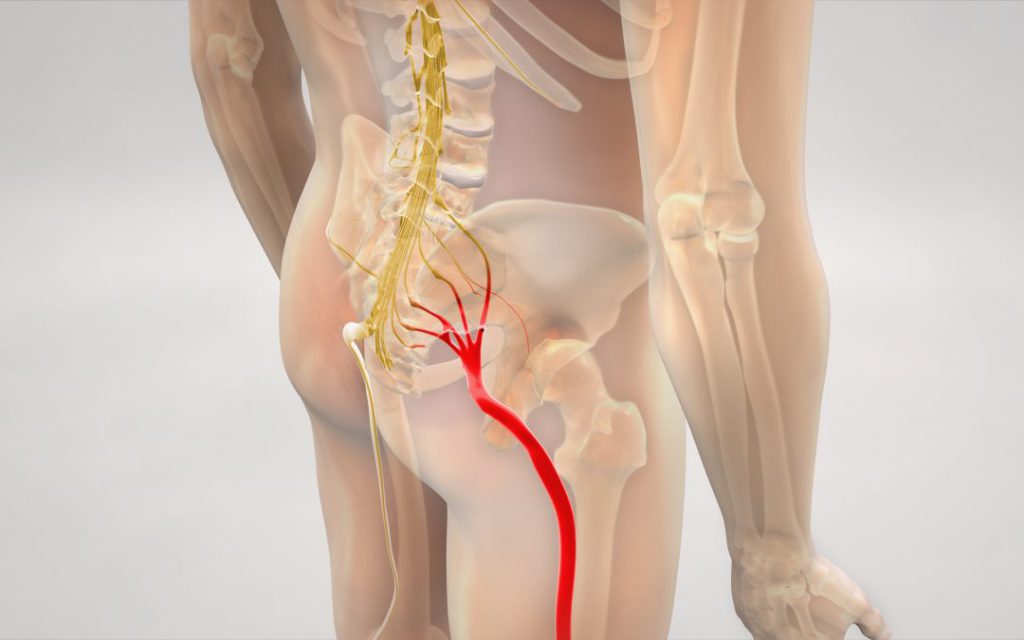
Nội dung bài viết / Table of Contents
This post is also available in: Tiếng Việt (Vietnamese)

Sciatica is just the pain caused by nerve when it is damaged or pinched. Nerve is the longest nerve in the body, starting from spinal cord to hips and going down to the back of the leg.Sciatica is a symptom of nerve diseases rather than a separate disease and usually disappears after 4 to 8 weeks of treatment.
Patients are usually the elder, chronic diabetes and obese people. It can be managed by reducing your risk factors. Please discuss with your doctor for further information.
The symptoms of sciatica include:
There may be some symptoms not listed above. If you have any concerns about a symptom, please consult your doctor.
You should contact your doctor if you have any of the following:
You need to be hospitalized right away if you:
If you have any symptoms listed above or have any questions, please consult with your doctor. Everyone’s body acts differently. It is always best to discuss with your doctor what is best for your situation.
The cause is usually protruding spinal disc and pressing directly onto the nerve. The disc is made of a jelly-like substance surrounded by a hard layer of fibers outside. The disc has the task of reducing shocks for spine, but in some cases it may overlap hernia and nerves.
Other causes include: osteoarthritis cause nerve irritation or swelling; even it is more rarely being inserted nerves by tumors, muscle; bleeding, infection and complications from injuries such as hip fractures. Spinal stenosis pressure on the nerve can cause sciatica.
There are many risk factors for this disease such as:
The information provided is not a substitute for any medical advice. ALWAYS consult with your doctor for more information.
Doctors diagnose sciatica based on medical history and physical examination of your symptoms. The tests and other tests are usually not necessary, however, your doctor may ask tomography (CT), magnetic resonance imaging (MRI) and other tests if your symptoms persist after treatment and doctors are considering the surgery for you.
Treatment for sciatica depends on the cause and pain level. In some cases, you can recover without treatment.
Treatments without surgery include:
Apply hot or cold on sore spot. You should ice within 48 to 72 hours, then use hot compresses.
You can use drugs such as nonsteroidal anti-inflammatory medicine to reduce swelling and relieve pain. Your doctor can also give you a muscle relaxant medication, steroids or oral epidural steroid injections.
If you have severe pain, you may need stronger medications containing narcotic in a short time. Your doctor will recommend alternating hot and cold massage to reduce muscle ache and tingles. However you should note that all painkillers and swelling have side effects. Nonsteroidal anti-inflammatory drugs may cause stomach upsets, diarrhea, stomach ulcers, headaches, dizziness, difficulties in hearing or rashes. Muscle relaxants can cause drowsiness, dizziness or rash.
Your doctor may also recommend physical therapy practice combined exercise to help relieve pain.
If all the above methods are ineffective and symptoms become severe, you will need surgery to remove the bone branch or part disc is pinched sciatic nerve.
Read more: Herniated disc
What are some lifestyle changes or home remedies that can help me manage sciatica?
The following lifestyles and home remedies might help you cope with this disease:
If you have any questions, please consult with your doctor to better understand the best solution for you.
Sources: